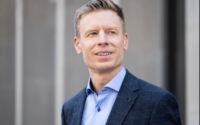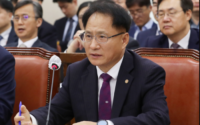Geopolitical pessimism’s drawbacks 2023
Power rules global politics. Geopolitics revolves around power and its use. Power is crucial, yet few agree on its definition or measurement.
Power is a country’s capacity to influence others, whether by military power or GDP. These power measurements are outdated and biased. Future expectations and whether state officials are enthusiastic or pessimistic about their country are crucially missing. These competing perceptions decide whether soft, harsh, or a calibrated blend of power matters.
State power and optimism/pessimism: how? Leaders take risks to avoid decline or conflict when the future appears dismal. Anxiety is hazardous. Hobbesian lenses produce Hobbesian policies. Brinkmanship, zero-sum rivalry, and socioeconomic stagnation result.
Optimistic leaders use strategic patience, which is connected to sustainable development and international collaboration. This viewpoint lets policymakers invest in long-term power sources including global governance, soft power projection, technical advancements, and multilateral security frameworks.
Self-reinforcing impact. Because the return on investment isn’t instant, pessimistic leaders won’t care about these persuasion methods. By contrast, a leader who thinks about the future will be ready to pay short-term expenditures to invest in power tools that will pay off.
Strategic investments in various kinds of power underpin Gulf economic diversification efforts. Sports are crucial to Saudi Arabia’s Vision 2030 transformation program.
Modifiers that start with s include “soft,” “sharp,” “social,” and “structural.”
The Dakar Rally, Formula One, the Spanish and Italian Super Cups, and the World Heavyweight Boxing Championship are hosted by the Kingdom.
These initiatives show that Riyadh prioritizes sports investments. GDP contribution quadrupled in four years. Since 2015, female sports participation has increased 170%. The Kingdom’s recognized female national teams increased from zero to over 23.

These achievements earned the Kingdom the 2027 AFC Asian Cup and 2023 FIFA Club World Cup. Once established, soft power is hard to counter. Optimistic leaders comprehend and use sports diplomacy’s evident ROI.
Geopolitics works similarly. Conflicts in the Middle East are shifting. Geopolitical fault lines change. States are transcending zero-sum rivalry, creating new connections, and reassessing old ones. Turkey is seeking a strategic reset with many regional states after skilled diplomacy shifted the balance of power in the Eastern Mediterranean.
Ankara’s turn culminated in President Recep Tayyip Erdogan’s first high-level visit to the Kingdom in years. At the historic AlUla GCC meeting, a Saudi-led deal restored diplomatic relations amongst Gulf states, revitalizing a strong geostrategic bloc. The region’s diplomatic spring continues with Beijing’s successful Saudi-Iranian reconciliation.
These trends are led by Gulf governments that promote stability outside while undergoing extensive socio-economic restructuring. Saudi Arabia and the UAE know that the Middle East wants prosperity based on good governance, economic reform, and sustainable development. Thus, policies based on this notion benefit the region.
Not always. National strategies depend on big powers’ future optimism or pessimism. The Kingdom and Iran use their most important asset differently: youth with limitless potential.
Tehran used regressive zealots and aggressive police to repress teenage rallies. Saudi youth drive national development. Young Saudis are Vision 2030’s main drivers and beneficiaries.
Saudi Arabia is less inclined to use force against Iran because of its optimism. Given this optimism, Tehran’s attempts to disrupt the security arrangement look more like self-sabotage than threats. However, the same pessimism that gave millions to its violent proxy network left Iran economically devastated, diplomatically isolated, and socially shaken by months of anti-government rallies.
State-sponsored pessimism fosters a crisis mindset and short-term thinking, leading to a national focus on military strength and preventative repression. Pessimism makes military conflicts more likely. However, hopeful big powers will create fields of healthy rivalry where nations exist in a disputed but peaceful world.
Geopolitical power indicators are changing rapidly. Sustainability and state-sponsored optimism are complementary. Pessimistic leadership destroys the state, not imminent dangers. Global powers must build a case for history-defying optimism that strengthens international institutions and leads gloomy nations to a better future.



